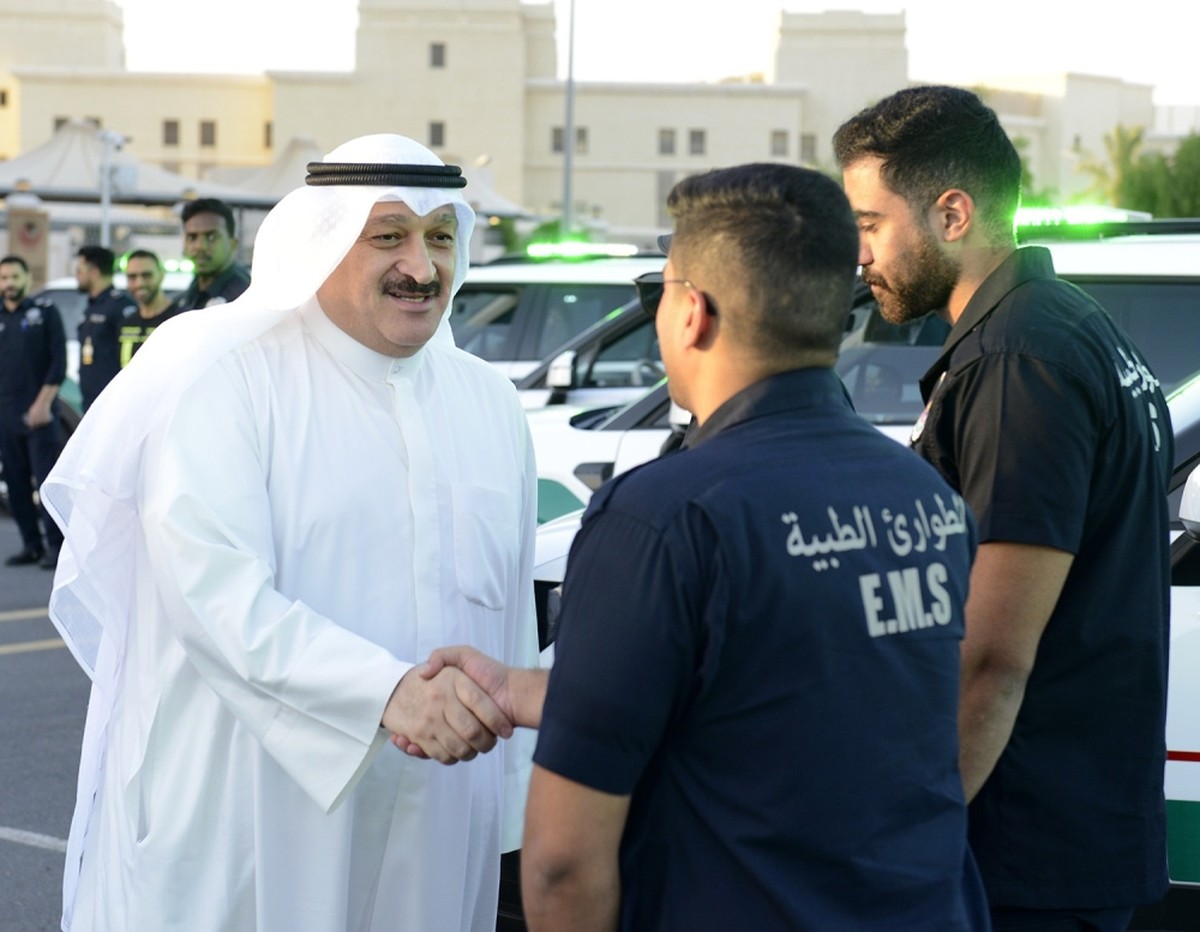10/07/2025
10/07/2025

KUWAIT CITY, July 10: The Ministry of Health (MoH) on Wednesday officially launched the “First Responder Fleet” — a strategic initiative designed to strengthen the delivery of emergency medical services across Kuwait, particularly in critical situations and underserved areas.
Minister of Health Dr. Ahmad Al-Awadhi inaugurated the project during a ceremony held in Kuwait City, describing the new fleet as a vital extension of the national health strategy aimed at bolstering medical preparedness and response times during emergencies.
“This project is not merely a logistical addition but a tangible embodiment of the state’s commitment to enhancing its emergency healthcare infrastructure,” said Dr. Al-Awadhi. “It reflects our national vision to protect lives and minimize health complications by improving rapid response capabilities.”
The First Responder initiative is the result of strategic cooperation between the Ministry’s Medical Emergency Department and the General Secretariat of Awqaf. It is designed to ensure swift access to life-saving care, including early resuscitation and first aid, particularly in remote or densely populated areas where response times are often critical.
According to the Health Minister, the primary goal is to deploy trained personnel and resources quickly to the site of an incident to assess injuries, provide immediate care, and stabilize patients before they are transferred to a hospital. The fleet will also support field triage operations in the event of major incidents, helping determine the scale of response needed and facilitating effective coordination.
The First Responder Fleet currently consists of 28 fully equipped vehicles, strategically distributed based on criteria such as population density, service coverage, and response priority. Al-Awadhi noted that these allocations will be regularly reviewed and updated to maintain optimal operational efficiency.
Assistant Undersecretary for Medical Support Services Dr. Abdullah Al-Fars added that the vehicles are staffed by qualified emergency medical technicians and paramedics, all certified in Basic Life Support (BLS) and Advanced Cardiovascular Life Support (ACLS). Each vehicle is outfitted with resuscitation equipment, oxygen supplies, advanced respirators, intravenous fluids, essential medications, and devices to stabilize fractures and monitor vital signs.
Dr. Al-Fars explained that the response process begins at the central operations room, where incoming emergency calls are assessed and the nearest First Responder vehicle is dispatched. Upon arrival, the team evaluates the situation, administers necessary care, and prepares a report for follow-up teams or hospital transfer.
Representing the Secretary-General of the General Secretariat of Awqaf, Nasser Al-Khedr emphasized the Secretariat’s ongoing commitment to collaborating with government agencies on developmental projects. He acknowledged the contributions of donors who have funded such community-serving initiatives through the Endowment Fund for Health Care, which supports projects in accordance with Islamic endowment principles and donor directives.
Al-Khedr affirmed the Secretariat’s readiness to continue supporting national efforts in enhancing Kuwait’s healthcare services, particularly in ways that align with both modern needs and traditional values.
The First Responder project marks a significant step in Kuwait’s health sector development, reinforcing the country’s ability to respond effectively and swiftly to medical emergencies, while upholding the principles of community care and strategic preparedness.


